This Gothic-inspired RPG indie is shaping up to be my favourite hidden gem of 2024
Drova is a handcrafted pixel art RPG with more freedom than most of this year's big blockbuster RPGs.
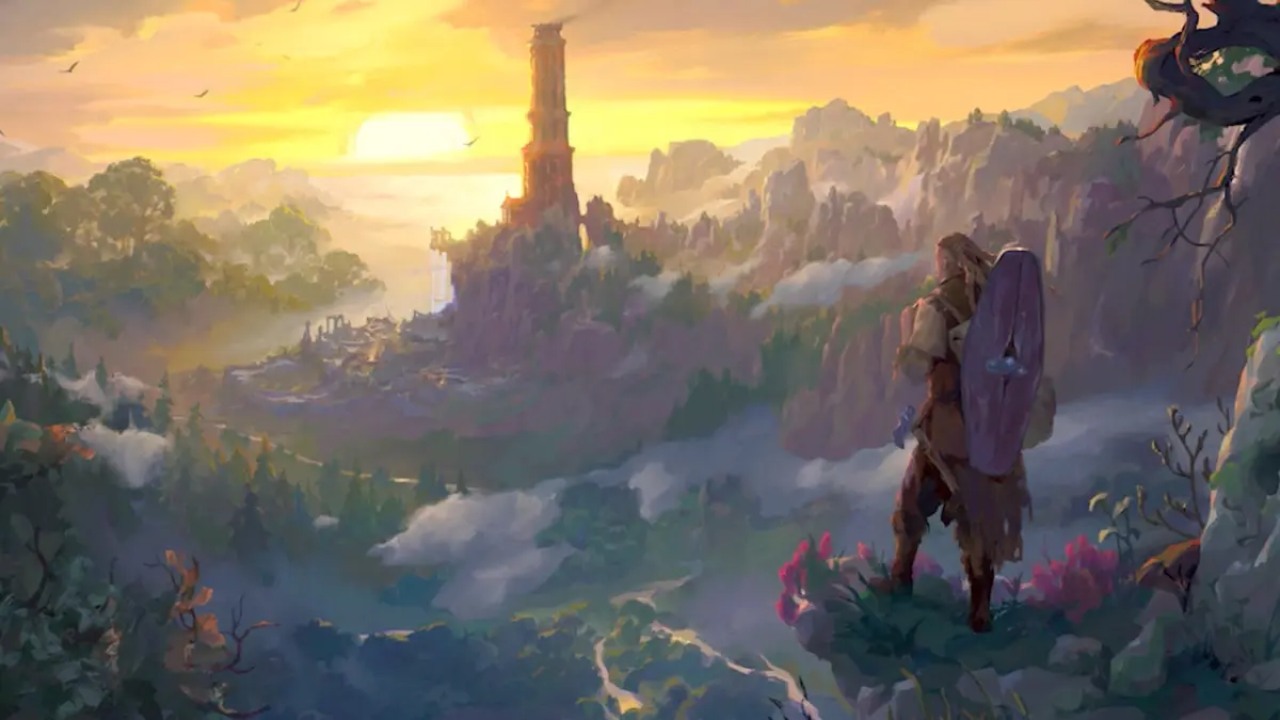
I know I'm not alone in feeling a bit adrift post-Baldur’s Gate 3. No RPG since has offered the rewarding exploration of Larian’s modern classic, nor the satisfaction of developing a character from mangy loser into unstoppable powerhouse. So I approached Drova with unfair scepticism. This modest looking pixel art RPG released last month and has flown under the mainstream radar, though it's already amassed a strong cult following and a very busy subreddit. I’m not saying it’s the next Baldur’s Gate 3—far from it—but it rewards exploration and novel approaches to problem solving, which is more than can be said for any blockbuster RPG I've played this year.
It takes a while to see why Drova has won the adoration of hardcore genre devotees. For me, it took about four hours into this reportedly 40-hour game. The playable character is a nobody adrift in a miserable hand-to-mouth world that by all evidence is slowly finding its feet after the collapse of a mostly forgotten and seemingly well-advanced civilization. The people of Drova forage for berries and rodent meat when they’re not performing gruelling menial labour for the self-designated authorities of this bleak world.
Drova definitely belongs to that tradition of the unforgiving RPG that starts unwelcoming and hard. Using an array of rusty old melee weapons—you can quickly find a sword and shield, or a two-handed axe, or a spear—I can fight against a sole giant rat with maybe only a scratch, but if I’m attacked by two or more at a time I’m likely to die. When it comes to combat against other humans: forget it. It's reminiscent of Piranha Bytes’ ropey-but-gratifying RPGs, Gothic, Risen, and Elex, where smart players will spend the first 10 hours vigilantly avoiding conflict. Anyone who loved the blank slate fragility of the courier in Fallout: New Vegas will appreciate what Drova is trying to do here, as will fans of Morrowind.
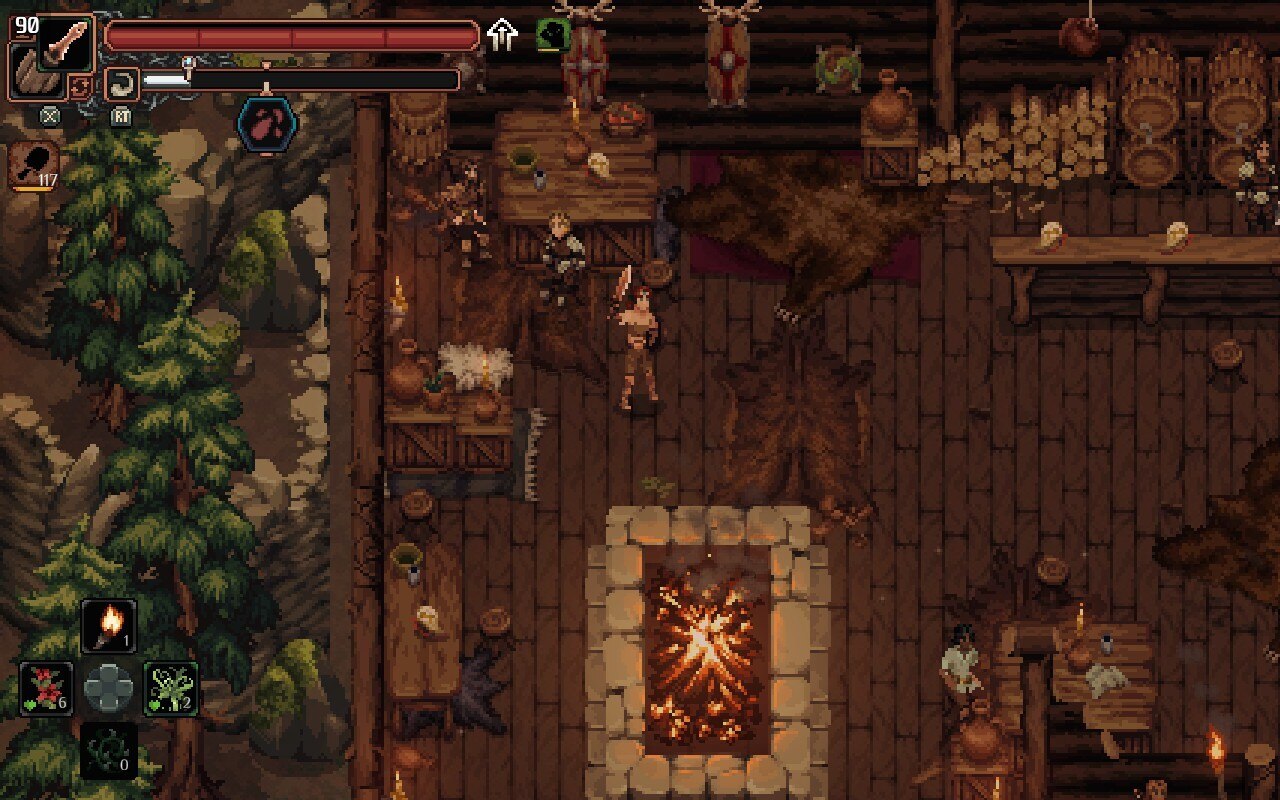
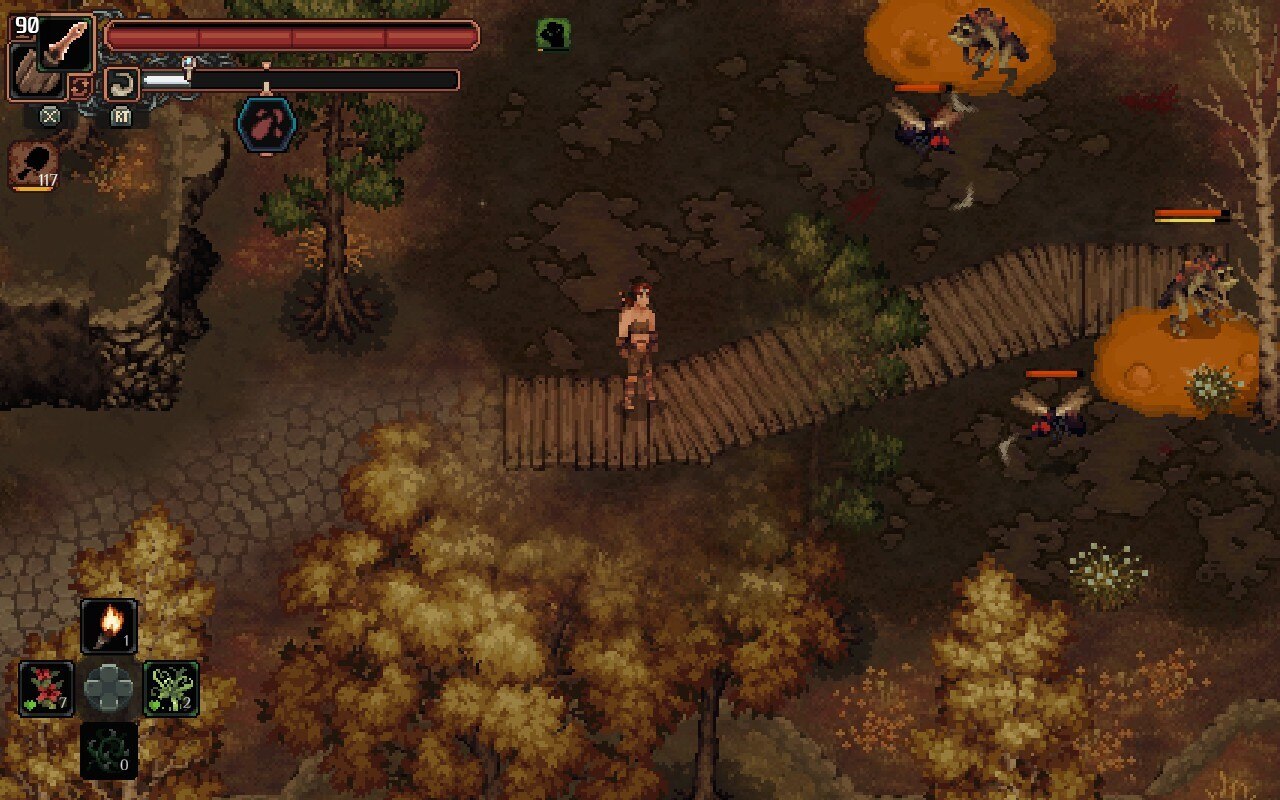
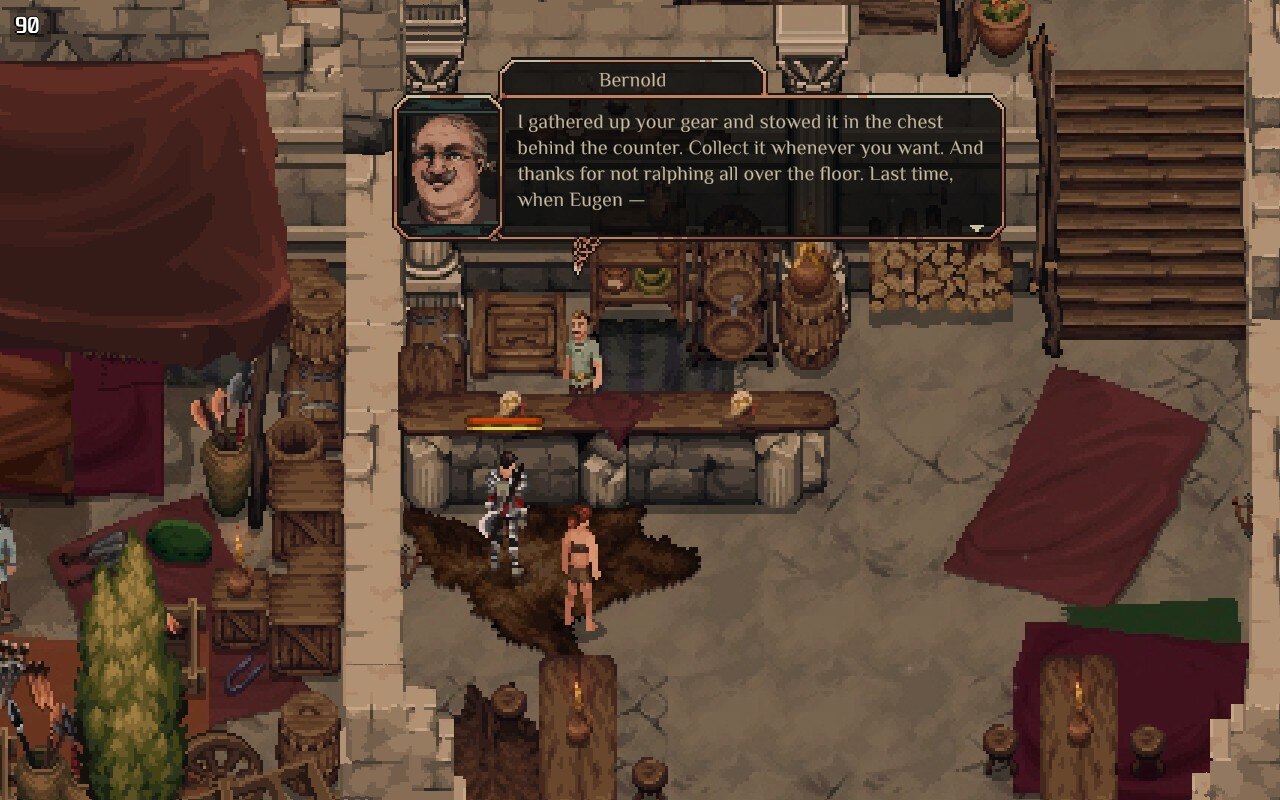
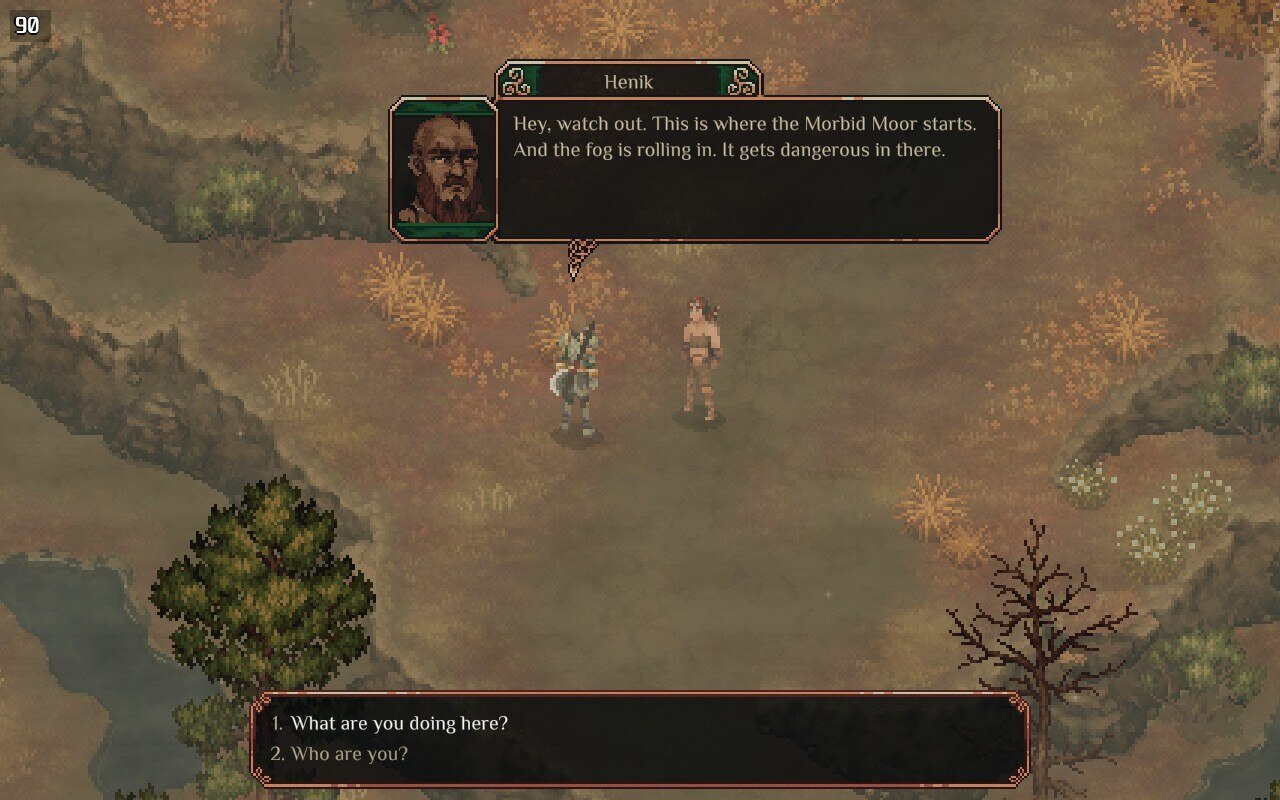
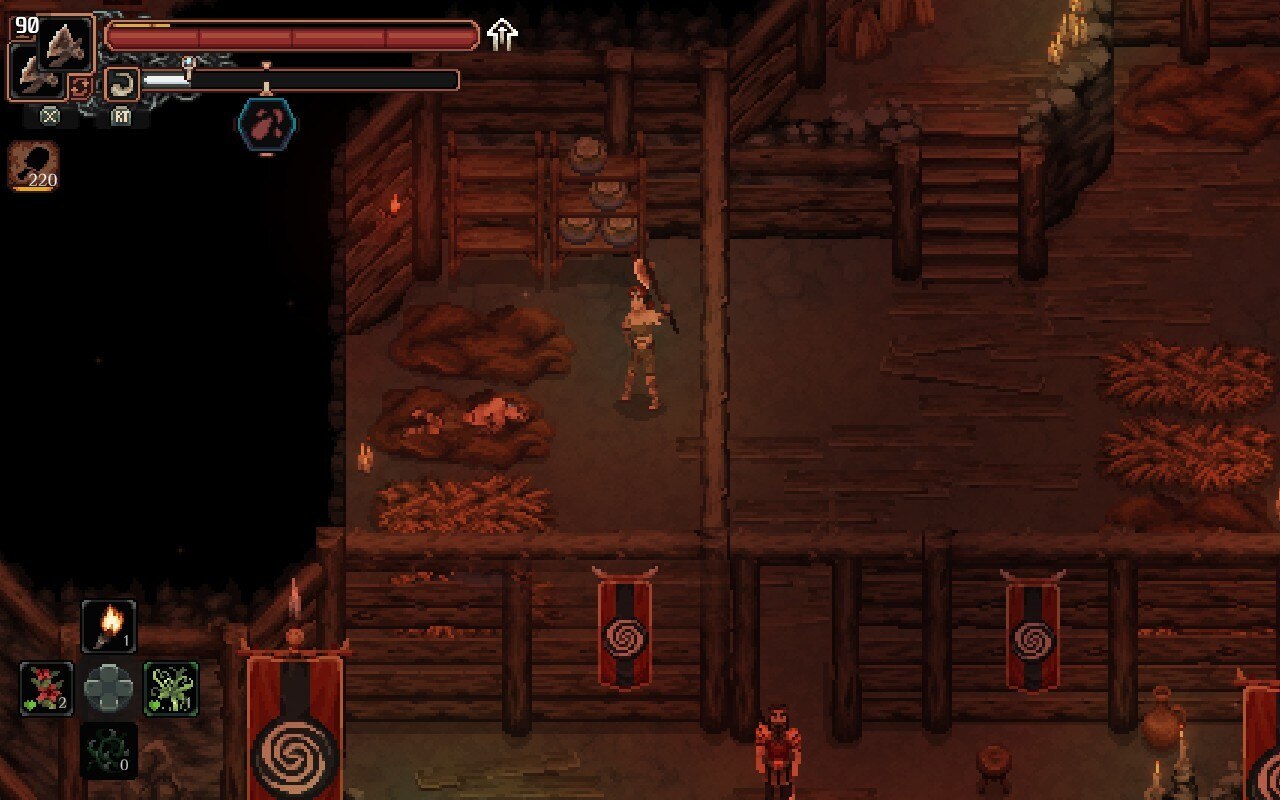
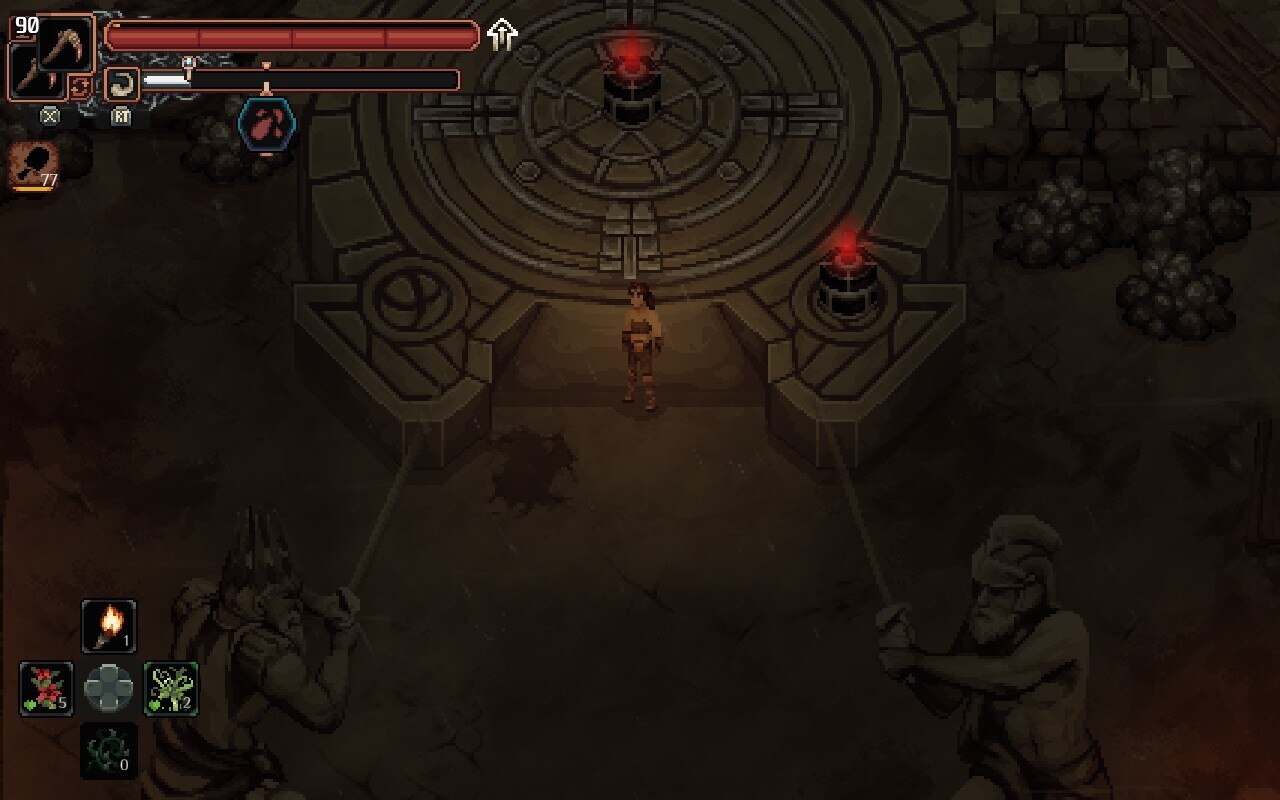
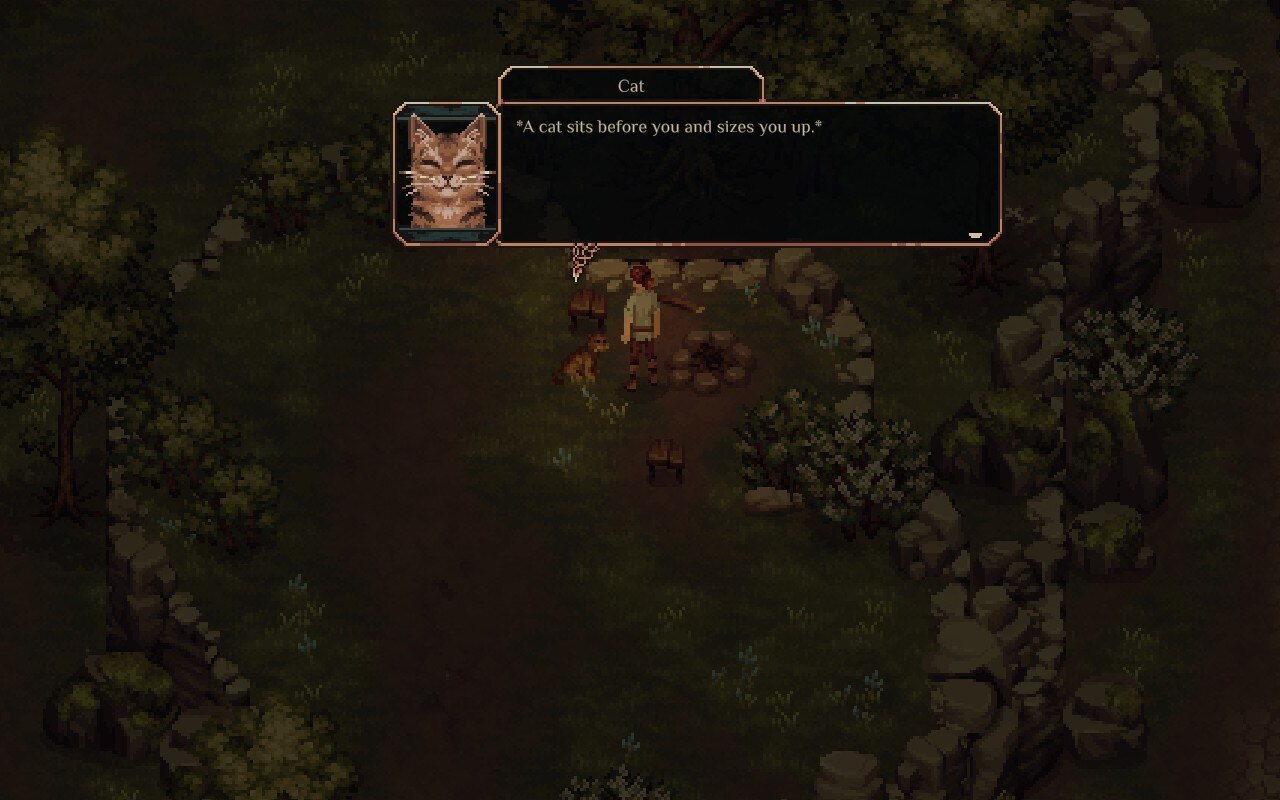
My first four hours in Drova are spent roaming a depressing forest dotted with settlements and logging fields, and doing the bidding of various NPCs not much better off than I. Slaying poisonous rats and completing tasks nets me XP, which is spent not on a skill tree but with characters who can help me boost my strength or agility, or my specialisation with a two-handed weapon or a sword-and-shield, among others. No matter how many points (all of them) I pour into strength, I'm not really having an easier time with those rats, nor is any better weaponry within my price range—far, far from it, to be honest. Drova is a long, hard climb.
So I spent four hours basically poking around, and I started to feel impatient with this game. I'm glad I persevered, because not long after I found The Pit: a large iron ore mine lorded over by local strongmen. This sprawling mine is rife with monsters, of course, but only past a certain point. Near the top is where most miners linger, fighting for scraps of the scarce remaining lucre. Some enterprising miners and guards resort to extorting their fellow workers to get a leg-up. Meanwhile, those who want to escape this petty graft and go deeper for riskier and greater riches are heavily exploited too. To make matters worse, everyone exiting the Pit has to give half their earnings to Katsa.
This is where Drova's engrossing roleplaying really comes to life, and it's where I became hooked. The Pit is full of engaging characters connected to scenarios that have lots of forks and outcomes. There's Murtagh, who protects the beds and robs sleeping miners blind. There's hard-of-hearing Roisin, whose ear plugs are highly sought after because fellow miner Oaf snores too loudly (I'm ashamed I took the hardline approach with Roisin). My goal is to get to the deeper part of the mines, but to do this I have to set off a surprisingly elaborate chain of events that results in, yes, at least one death, and very many more stealth robberies, backroom deals, and even some cooking. While the interconnectivity of these mini-narratives is impressive, it's the atmosphere that got under my skin: everyone in this mine is trying to get by, but the only way to get by is to undermine and double cross fellow miners, because the rulers of this world have found that it's profitable to set their subordinates against one another. It's unrepentantly bleak, yes, but also weirdly funny.
Drova's map isn't massive but it's really fun to explore. It's dense with chance encounters, bizarre side missions, and mysterious locales that I'm sure I'll need to revisit dozens of hours later. Best of all, Drova's forking missions make the most of the expanse. Later, once I've secured all the iron ore I need to gain entry to the exclusive Remnants Camp, I've got to convince several of its upstanding citizens to give me access to an even more exclusive area of the Camp. I can opt to convince one of two authority figures and the available means of convincing them are many and varied. Perhaps I want to sneak into a loanshark's house to steal their ledger, thus wiping the slate clean for a person who has the ear of an influential figure. Maybe I can alter the pre-ordained course of a corrupt arena fight in order to please a down-at-heel gambler. Or maybe I can just go rogue and kill a bunch of people while no one is looking.
While the combat seems unpromising for, well, hours, it does gradually open up, with an array of permanent abilities and one-use spell scrolls augmenting the scrappy slash-and-dodge rhythm of the scraps. People on reddit report that it's possible to get extremely, game-breakingly powerful, which is almost as exciting to me as the multi-pronged outcomes of its narrative-rich missions. It's a small looking game with a surprisingly massive scope, and it's the first game I've played since Baldur's Gate 3 that has made me say: What the heck, you can do that? Drova is on Steam.
Keep up to date with the most important stories and the best deals, as picked by the PC Gamer team.

Shaun Prescott is the Australian editor of PC Gamer. With over ten years experience covering the games industry, his work has appeared on GamesRadar+, TechRadar, The Guardian, PLAY Magazine, the Sydney Morning Herald, and more. Specific interests include indie games, obscure Metroidvanias, speedrunning, experimental games and FPSs. He thinks Lulu by Metallica and Lou Reed is an all-time classic that will receive its due critical reappraisal one day.


